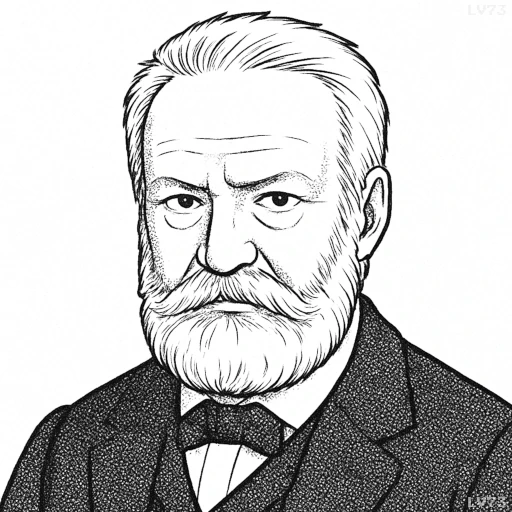“What Shakespeare was able to do in English he would certainly not have done in French.”

- February 26, 1802 – May 22, 1885
- Born in France
- Author, poet, playwright
table of contents
Quote
“What Shakespeare was able to do in English he would certainly not have done in French.”
Explanation
In this quote, Victor Hugo reflects on the unique qualities of the English language and its capacity to express complex human emotions and ideas, which he believes would not have been as effectively conveyed in French. Hugo suggests that the richness and flexibility of English, with its capacity for dramatic expression, metaphor, and nuance, allowed Shakespeare to achieve a level of literary greatness that would not have been possible in a language with a more rigid structure like French. He is highlighting the idea that language shapes the creative possibilities of writers, and the tools available in English allowed Shakespeare to push boundaries and explore the depths of human nature in a way that would have been constrained in other languages.
Hugo, a writer deeply embedded in the Romantic movement, had a deep appreciation for the power of language in the creation of literature. He recognized that while French was a language of great precision and clarity, its rules and structure were often seen as more limiting for the kind of emotional intensity and dramatic complexity that Shakespeare achieved. The versatility of English, especially in its ability to capture a wide range of human experiences, allowed Shakespeare’s works to flourish in ways that Hugo believed would not have been possible in French.
In modern terms, Hugo’s statement emphasizes how the nature of language influences artistic expression. Every language has its own set of strengths and weaknesses, and certain forms of creativity might be more suited to one language over another. This quote also raises interesting questions about the relationship between cultural context and literary tradition, and how writers are shaped by the linguistic tools at their disposal. For those who study literature, it serves as a reminder of the intimate connection between language and art—and the ways in which a writer’s language shapes their creative legacy.
Would you like to share your impressions or related stories about this quote in the comments section?



